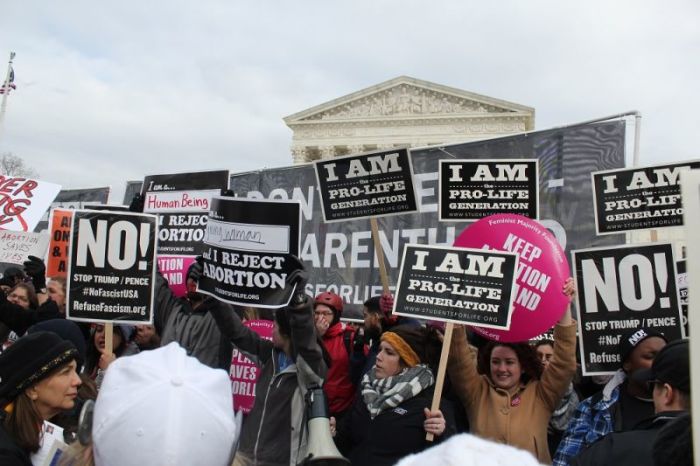United Nations urges US to 'ensure' abortion rights, slams passage of statewide bans

In response to recent laws passed in conservative states that could provoke a U.S. Supreme Court challenge to abortion rights, the United Nations is calling on the United States government to ensure that women in the country can get an abortion.
Ravina Shamdasani, a spokesperson for the U.N. High Commissioner for Human Rights, told Reuters this week that evidence has shown that bans on abortion actually jeopardize the “life, health and safety of the women concerned” and do not reduce the number of abortions.
She argued that laws such as the ones passed in Alabama, Georgia, and other states are “inherently discriminatory” because they affect impoverished women from minority backgrounds and marginalized communities.
“We are very concerned that several U.S. states have passed laws severely restricting access to safe abortion for women, including by imposing criminal penalties on the women themselves and on abortion service providers,” Shamdasani was quoted as saying.
“So we are calling on the United States and all other countries to ensure that women have access to safe abortions. At an absolute minimum, in cases of rape, incest and fetal anomaly, there needs to be safe access to abortions.”
Last week, Alabama Gov. Kay Ivey signed legislation that bans nearly all abortions in the state without exceptions for cases of rape or incest. The bill does provide for an exception in the case where the mother’s life is at risk
Days later, Missouri passed a law banning abortions after eight weeks of pregnancy that also did not include exceptions for rape and incest. The bill has not yet been signed by Republican Gov. Mike Parson but he has indicated that he will sign the bill.
Earlier this month, Georgia Gov. Brian Kemp signed a bill that banned abortion after six weeks of pregnancy but did include exceptions for rape, incest and when the mother’s life is at risk.
So far in 2019, eight states with Republican-controlled legislatures have passed some sort of abortion restriction, which if challenged legally could be brought before the conservative-majority Supreme Court to challenge the court’s landmark 1973 ruling in Roe v. Wade.
In that decision, the court made it a national right for a woman to seek an abortion until the fetus is “viable.”
Abortion advocates have long claimed that legal restrictions to abortion will increase the number of women who seek illegal abortion and that any restriction to abortion would cause hundreds if not thousands of women to die from back-alley abortions. However, pro-life activists have refuted that claim.
“In 1972, the year before Roe, while there were 39 deaths from illegal abortion and 24 deaths in the handful of states where abortion was legal,” a report from the pro-life organization Live Action reads, citing data from the Centers for Disease Control. “In 1973, the year the Supreme Court forced abortion on the nation, the CDC reports 19 deaths from illegal abortions and 25 deaths from legal abortion.”
It should be noted that more recent CDC data shows that the number of deaths from both legal and illegal abortion has dwindled over the years as abortion has become more accessible.
However, the CDC found that at least six women died as a result of legal abortion complications in 2014, the last year in which data is available.
“The annual number of deaths related to legal induced abortion has fluctuated from year to year over the past 40 years,” the CDC reports. “For example, nine legal induced abortion-related deaths occurred in 1998, four in 1999, and 11 in 2000.”
“The national legal induced abortion case-fatality rate for 2008–2014 was 0.62 legal induced abortion-related deaths per 100,000 reported legal abortions,” the CDC added. “This case-fatality rate was similar to the rate for most of the preceding 5-year periods but lower than the case-fatality rate of 2.09 legal induced abortion-related deaths per 100,000 reported legal abortions for the 5-year period (1973–1977) immediately following nationwide legalization of abortion in 1973.”
Follow Samuel Smith on Twitter: @IamSamSmith
or Facebook: SamuelSmithCP




























